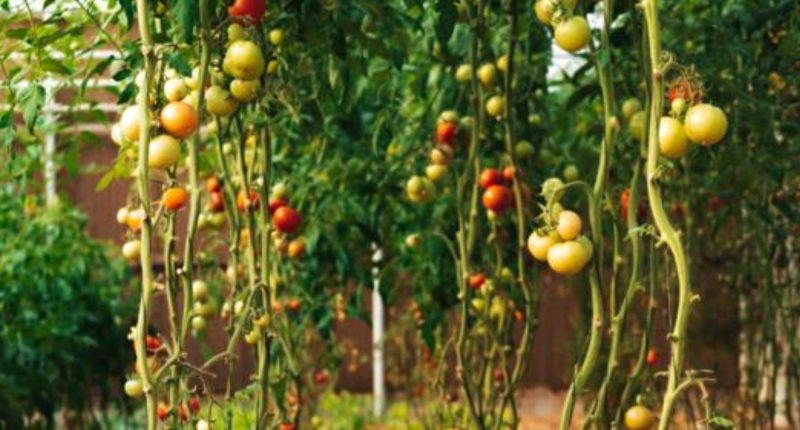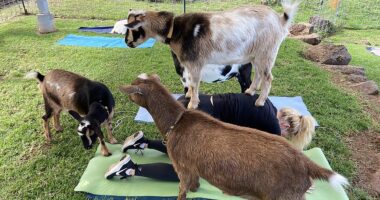Opinions expressed by Entrepreneur contributors are their own.
You’re reading Entrepreneur Middle East, an international franchise of Entrepreneur Media.
By investing in agricultural technology, renewable energy, and food security initiatives, the UAE is showing that it is possible to produce food in a sustainable way, even in a challenging environment. The UAE’s commitment to food independence and sustainability is particularly important in light of the upcoming Conference of the Parties of the the United Nations Framework Convention on Climate Change (UNFCC), more commonly referred to as COP28. In 2018, the UAE imported 86% of its food. However, by 2021, this number had fallen to 70%. The UAE aims to achieve full food independence by 2051.
Through my research and writings, I have maintained that family businesses in the UAE are the primary force leading many such initiatives, and hence best suited to be the focal point between different agencies working to combat climate change. In September 2023, I attended the graduation ceremony for the first batch of the UAE Ministry of Economy‘s Thabat family business venture builder program, where the UAE Minister of Economy, H.E. Abdulla bin Touq Al Marri, praised the work of family businesses in leading the agritech space among many other growing sectors.
In this article, I feature my interaction with Ghazal Saeed and Rakan Ismail Al Gergawi, co-founders of the family owned local farm, Wadi Al Amardi, on how the UAE is becoming food independent, and how this aligns with the country’s sustainability priorities ahead of COP28. The young Emirati couple are on a pioneering project that is helping to transform Dubai’s food landscape, demonstrating how sustainable farming can be successful in the UAE. Their commitment to providing fresh, organic, and locally produced food is an inspiration to other aspiring farmers in the country.
 Source: Wadi Al Amardi
Source: Wadi Al Amardi
Wadi Al Amardi Farm was established in 1996, in Dubai’s Al Khawaneej neighborhood. In 2022, Saeed and Al Gergawi achieved a remarkable transformation of the farm to begin providing fresh, organic, and locally produced fruits, vegetables, and honey to the community. They use sustainable farming practices to protect the environment and ensure the quality of their products. The farm offers a variety of products, including tomatoes, cucumbers, eggplants, zucchini, figs, strawberries, melons, grapes, mangoes, papayas, bananas, and more. They also produce their own raw honey.
Al Gergawi’s journey from aviation management to fig farming and educational outreach is really impressive. His passion for agriculture and commitment to improving the quality of figs locally is commendable. The growth of one tree into 450 trees in just three years is a testament to his dedication and expertise in farming. Meanwhile, Saeed is a force to be reckoned with as well. Her journey from an academic background in aviation and supply chain management to becoming the operator of Wadi Al Amardi Farm is truly remarkable. Her ability to merge her formal education with her passion for nature and animals highlights her entrepreneurial spirit. Her dedication to producing locally sourced goods aligns with the UAE’s goal of achieving self-sufficiency and reducing dependency on imports. This not only contributes to the country’s sustainability, but also strengthens the local economy. As a mother of three, Saeed’s commitment to this mission is an inspiration, showing that with determination, it’s possible to follow one’s true passion, and make a positive impact on the community and the environment.
 Source: Wadi Al Amardi
Source: Wadi Al Amardi
Saeed’s vision for Wadi Al Amardi is to create a model for sustainable agriculture in the UAE. She believes that by producing food locally, we can reduce our reliance on imports and improve our food security. Saeed’s and my path crossed as we began to work together to bring guests to witness firsthand environment-friendly and sustainable farm tourism in Dubai. With each interaction with Saeed, and every visit to Wadi Al Amardi, my admiration grew. Eventually, I sat down with Ghazal to bring out what inspired her to take her family business in this direction. Here are excerpts from a conversation with her:
What inspired you to create Wadi Al Amardi Sustainable Farm?
We were inspired to create Wadi Al Amardi Sustainable Farm, because we believed that sustainable agriculture is essential for the future of our planet. We also wanted to create a model for sustainable agriculture in the UAE, a country that is heavily reliant on food imports.
What are the challenges of creating a sustainable organic farm in Dubai?
There are many challenges to creating a sustainable organic farm in Dubai. The climate is hot and dry, which makes it difficult to grow crops without using a lot of water. The cost of machineries and greenhouses that help in maintaining the required temperature for both the water and overall climate inside the greenhouses is high. In order to be capable to grow all types of fruits and vegetables, having greenhouses and focusing on hydroponics is a necessity. Additionally, the UAE has a limited agricultural land area.
How do you ensure that Wadi Al Amardi is using sustainable practices?
We use a variety of sustainable practices at Wadi Al Amardi, such as drip irrigation, organic fertilizers, and planting cover crops to prevent erosion. Insect traps and control pests help us stay away from the use of chemicals.
 Source: Wadi Al Amardi
Source: Wadi Al Amardi
What are your hopes for the future of Wadi Al Amardi?
We hope that Wadi Al Amardi will continue to grow and thrive. We hope that it will become a model for sustainable agriculture in the UAE and the world. We also hope that it will inspire other people to create sustainable businesses. The farm does not only contribute to local produce, but also serves as an educational platform, promoting awareness about agriculture and nature. It’s a wonderful way to engage with the community, and inspire future generations to appreciate and respect the environment.
What advice would you give to other women in family businesses who are interested in creating sustainable businesses?
Women in family businesses can indeed be influential role models for their families and communities when it comes to sustainability. Your emphasis on thinking about the future generation’s well-being and the importance of leading by example through small but meaningful changes is crucial. Promoting businesses that prioritize environmental sustainability, and advocating for the use of recyclable products can make a significant impact on the path to a healthier planet for future generations. Ensure that all family members involved in the business share the commitment to sustainability. Open communication is key. Continuously learn about sustainable practices in your industry. Attend workshops, read, and network with experts to stay updated.
 Source: Wadi Al Amardi
Source: Wadi Al Amardi
What are the greatest strengths of belonging to a family business leading climate change initiatives?
The biggest challenge of physically operating a farm in a desert is the climate. We have to be very careful about how we use water, as the temperature of the water being too hot can completely damage all our produce, and so, we should always maintain a certain water temperature. We also have to be creative about how we grow crops in the hot and dry climate. Belonging to a family business really helps in dealing with the day-to-day challenges of operations, because we have inherent wisdom from previous generations of family members, and our multi-value supply chain. Even our team members are now in multiple generations of working with us, and our collective mindset is long-term. We are doing this not just for our children, but our grand children and great grand-children.
What are the biggest misconceptions about sustainable agriculture?
Some of the biggest misconceptions about sustainable agriculture are that it is more expensive than conventional agriculture and that it produces lower yields. However, these misconceptions are not true. Sustainable agriculture can be just as profitable as conventional agriculture, and it can produce just as high yields.
This article is from Entrepreneur.com








